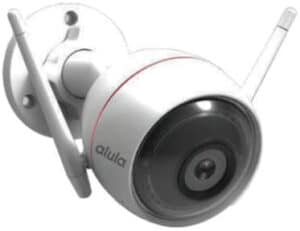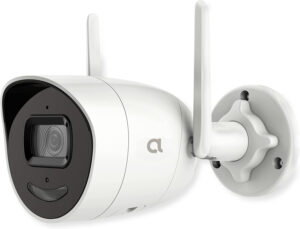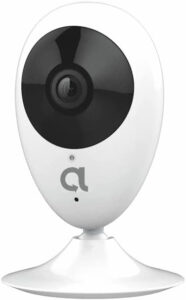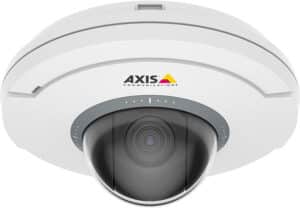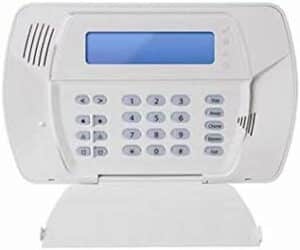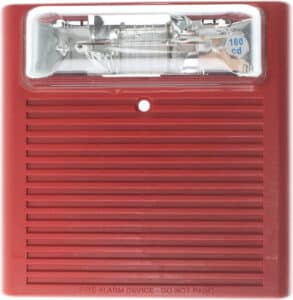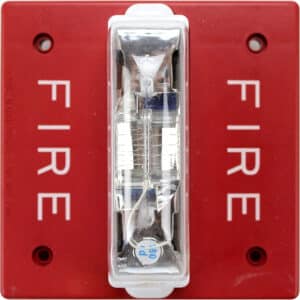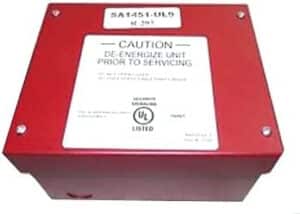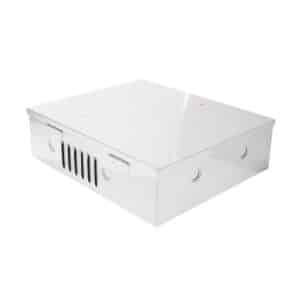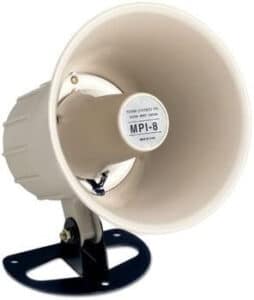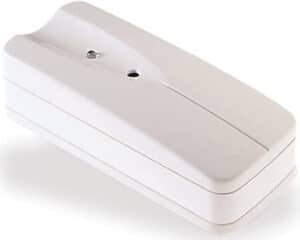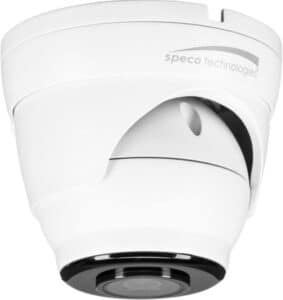Cloud-based Home Security Systems: Features to Consider, Benefits, and More
The home security industry is quickly evolving with the introduction of cloud-based home security systems. These systems offer a comprehensive range of features, benefits, and more to provide homeowners with unbeatable protection and peace of mind. With the ability to access their home systems remotely, homeowners can ensure their home is safe no matter where they are.
In this blog post, we will explore the features to consider, benefits to gain, and more when it comes to cloud based home security systems. Read on to learn how these systems can keep you and your home safe.
Table of Contents
What Are Cloud Based Home Security Systems?
Cloud-based home security systems are systems that use cloud technology to store and manage security camera footage. Instead of relying on local storage, such as a computer hard drive or a DVR system, cloud-based security systems store video footage in the cloud, meaning it is stored on remote servers and can be accessed from anywhere with an internet connection. This makes it easy to access video footage from your home security cameras from any device.
Features to Consider in Cloud-based Security Systems
Here are the features you need to consider if you plan on buying cloud-based security cameras
Cloud Storage and Video Surveillance
One of the most significant advantages of cloud-based security systems is the ability to store video footage remotely in cloud storage. Traditional DVR systems rely on local storage, which can be limited and vulnerable to theft or damage. Cloud video storage offers a more secure and scalable solution, allowing you to access your video footage from anywhere with an internet connection.
Cloud Security Cameras and Camera System
Selecting the right security cameras and camera systems is crucial for optimal performance. Look for cameras that offer HD video quality, motion detection, and advanced features such as facial recognition and night vision. A well-designed security camera system will allow you to monitor multiple cameras feeds simultaneously, ensuring complete coverage of your property.
Professional Monitoring and Motion Alerts
Many cloud-based security systems offer professional monitoring services, providing around-the-clock surveillance and immediate response to potential threats. Additionally, motion alerts can notify you of any unusual activity detected by the security cameras, allowing you to take action immediately.
Mobile Apps and Access Control
Modern cloud-based security systems often come with mobile apps, enabling you to monitor your home or business security from your smartphone or tablet. These apps provide real-time access to camera feeds, motion alerts, and video clips, allowing for greater control and peace of mind. Access control features can also grant or restrict entry to specific individuals, further enhancing security.
Video Quality
HD video quality is essential for effective video surveillance. Look for security cameras that offer high-resolution video and good low-light performance to ensure that you can clearly identify people and objects in your footage.
Wired vs. Wireless Systems
Cloud-based security camera systems can be either wired or wireless. Wired systems typically offer more reliable performance but may be more challenging to install. Wireless systems, on the other hand, are easier to set up but may be subject to interference from other devices. Consider your specific needs and installation requirements when choosing between a wired or wireless system.
Motion Detection and Alerts
Motion detection is a critical feature for a security camera system, as it allows you to receive alerts when activity is detected on your property. Look for systems that offer customizable motion detection settings and real-time notifications.
Integration with Smart Home Devices
If you have other smart home devices, such as smart locks or access control systems, it may be beneficial to choose a cloud-based security camera system that integrates seamlessly with these devices. This integration can provide a more cohesive and user-friendly experience, allowing you to manage your entire smart home ecosystem from a single app or platform.
Two-Way Audio
Two-way audio is a valuable feature that enables the communication between you and whoever is on your property. This can be particularly helpful in situations where you need to speak with a visitor, such as a delivery person, or deter potential intruders by making them aware that they are being monitored.
Encryption and Data Security
Given the sensitive nature of video surveillance data, it’s crucial to choose a cloud-based security camera system that prioritizes data security. Look for systems that offer end-to-end encryption, ensuring that your video footage is protected both during transmission and while stored on the cloud servers.
Customer Support
Reliable customer support is essential when it comes to your home security system. Choose a provider that offers prompt and helpful support, whether you need assistance with installation, troubleshooting, or general questions about your system.
Benefits of Cloud-based Home Security Systems
Cloud-based home security systems offer a great way to keep your home safe and secure. These systems are designed to provide an array of features that make monitoring and protecting your home easier than ever before. In addition to the features, there are a number of benefits that come with using a cloud-based home security system.
These benefits include:
Enhanced Security with Cloud Technology
Cloud technology allows for increased security and reliability compared to traditional wired systems. For example, cloud-based security cameras are not vulnerable to power outages or physical tampering. Additionally, video footage stored in the cloud is protected by advanced encryption methods, ensuring that your data remains safe and accessible only to authorized users.
Easy Installation and Scalability
Cloud-based security systems are typically easier to install and scale than their wired counterparts. Wireless security cameras can be quickly set up and connected to your internet connection without the need for complex wiring. As your security needs change, you can easily add or remove cameras and adjust your cloud storage plan accordingly.
Remote Access and Real-time Monitoring
The ability to access your security system remotely through mobile apps and web interfaces means you can monitor your property in real-time, regardless of your location. This feature is particularly valuable for business security, as it allows you to keep an eye on multiple locations simultaneously and respond to incidents as they occur.
Cost Savings and Flexible Pricing
Cloud-based security systems often come with flexible pricing plans, allowing you to choose the level of service and features that best suit your needs. By eliminating the need for costly hardware and local storage solutions, cloud-based systems can provide significant cost savings over time.
Potential Drawbacks and Considerations
Internet Connection Reliability
A reliable internet connection is essential for cloud-based security systems to function effectively. Video footage and camera feeds are transmitted through the internet, and any disruptions to your connection can impact the performance of your security system. It’s essential to ensure you have a stable and fast internet connection to fully benefit from cloud-based security.
Ongoing Subscription Costs
While cloud-based security systems can offer cost savings in terms of hardware and local storage, they typically require ongoing subscription fees to cover cloud storage and professional monitoring services. Be sure to factor in these ongoing costs when evaluating the overall value of a cloud-based security system.
Conclusion
For readers that have been considering investing in a cloud-based home security system, this blog has provided an overview of the features to consider and the benefits that come with this type of system.
The main takeaway is that cloud-based home security systems are more secure, reliable, and cost-effective than traditional security systems. They are also easier to install and maintain. If you are looking for a DIY home security system that will keep your home secure and reduce the cost of monitoring, then Xcessory Zone has the perfect solution for you.
With our range of DIY home security products and our user-friendly e-commerce platform, you can set up your own home security system in no time.
Click here to start shopping now and get the peace of mind you deserve.
FAQs
How are cloud-based security camera systems different from traditional wired systems?
Cloud cameras are rapidly becoming the go-to security camera system for businesses and homeowners alike – but how do they differ from traditional wired systems? Cloud cameras offer a range of features a wired system simply cannot.
For starters, cloud cameras store all footage securely in the cloud, meaning it can be accessed from anywhere at any time. This is a huge improvement on wired systems, which require the footage to be stored on-site or on a local hard drive. Cloud cameras also offer motion detection and tracking, meaning only recordings that are triggered by motion are stored, helping to save on storage space.
In addition, cloud cameras are much easier to install than traditional wired systems, which require extensive wiring and configuration. Cloud cameras are connected wirelessly and can be set up in minutes. A further benefit of cloud cameras is that they are also much more affordable, making them a great option for those on a budget.
Can cloud-based home security systems be integrated with other smart home devices?
Yes, cloud-based home security systems can be integrated with other smart home devices. In fact, this is becoming increasingly popular in the tech industry. Features like recorded video, a camera option, and remote access are all possible with a cloud-based security system. This allows users to monitor their homes from anywhere in the world, as well as receive notifications if something is amiss. Smart home integration can be a great way to improve home security and make life easier.
How do I choose the best cloud-based home security system for my needs?
Choosing the best cloud-based home security system can be a daunting task, but with the right knowledge, it can be made easier.
Firstly, consider features such as cloud storage, HD video quality, motion detection, real-time alerts, and two-way audio. Select cameras and systems that fit your needs and budget. Look for cameras that offer high-resolution video and good low-light performance.
Wired or wireless systems are available, so consider your installation requirements. Integration with any existing smart home devices can be advantageous.
Check that the system uses end-to-end encryption to ensure data security. Good customer service and support can also be essential when making your decision. Consider the benefits such as enhanced security, easy installation, and scalability, remote access, and flexible pricing.
Potential drawbacks can include ongoing subscription costs and an unreliable internet connection.
Meet Our Partners!




